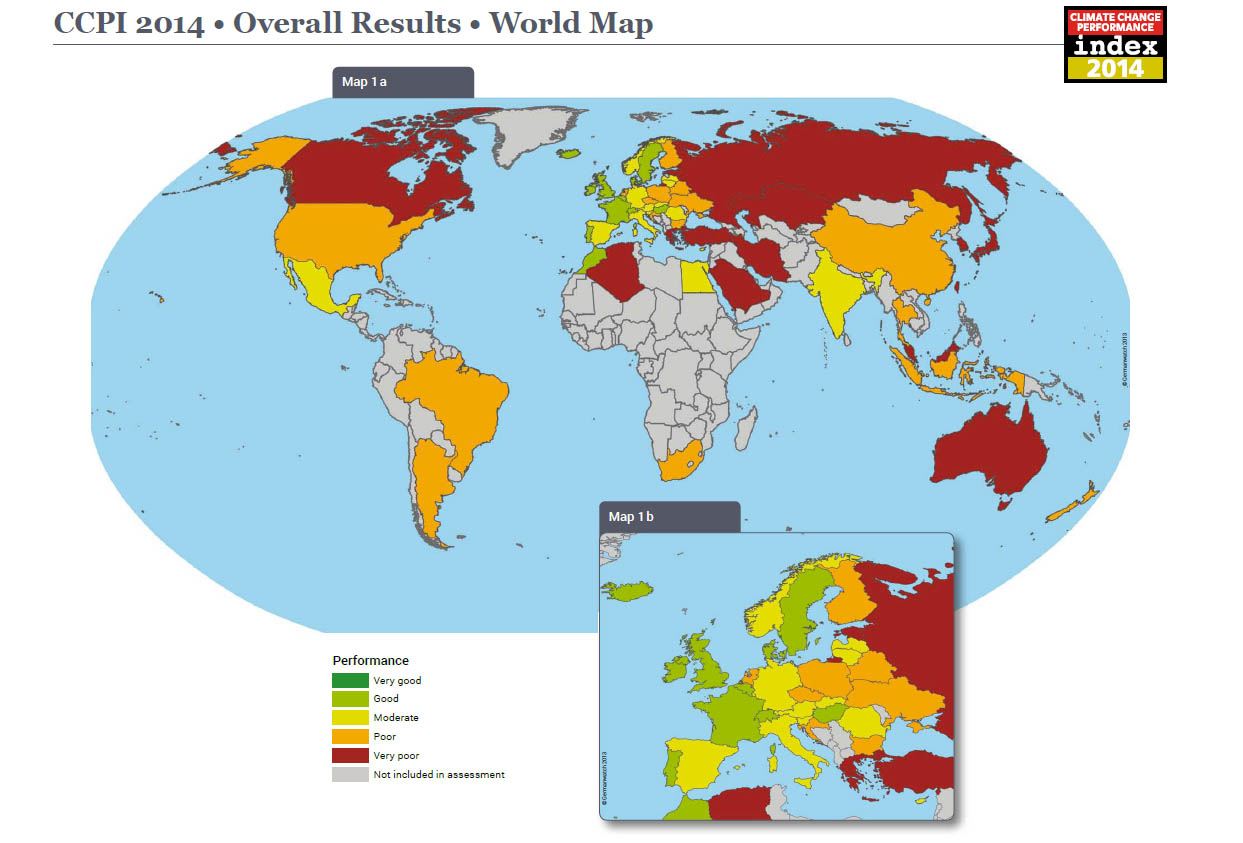Tim Grosser was a bit snippy with reporters when he headed off to the latest round of Climate talks in Warsaw last week. Although government projections have New Zealand’s CO2 emissions continuing to rise for the next decade, he only offered fulsome praise for the reputation of New Zealand in this arena and our overall efforts to reduce emissions.
However, it is no surprise to anyone who is following the path of New Zealand’s minority National government, to learn that other observers are less enthusiastic concerning our efforts.
Germanwatch and Climate Action Network have just released their 7th annual Climate Change Performance Index. The goal of this global survey is to highlight those countries with best-practice climate policies and put political and social pressure on those countries which have, up until now, failed to take ambitious action on climate protection.
They are somewhat hopeful in their overall analysis noting that the rate of increase for global CO2 emissions is declining, but also make the point that no country is doing enough to prevent dangerous climate change. For this reason none is ranked Very Good and the first three positions in their listing are vacant. Denmark tops the list with a score of 75.23 and is followed by United Kingdom (69.66), Portugal (68.38), Sweden (68.10) and Switzerland (66.17). New Zealand (53.49) has retained its Poor rating falling to 42nd place between Argentina (53.60) and United States (52.93). Australia (41.53) also retains its rating (Very Poor), coming 57th out of the 61 countries assessed.
Individual scores are calculated from the assessment of performance in key categories and it is here that New Zealand’s schizophrenic nature is highlighted. We score Good in terms of Development of Emissions and Efficiency, and Moderate in terms of Renewable Energies, but rank among the worst (Very Poor) in terms of Emission Levels and Climate Policy.
The National Party’s hierarchy, stacked with climate sceptics, articulates a first follower policy to climate change i.e when China and United States adopt binding measures, New Zealand will quickly follow. They argue that because New Zealand’s emissions are globally insignificant (0.1%) it would by pointless to act unilaterally.
What they fail to acknowledge is that New Zealand is already in the rump of recalcitrant nations and falls far below the standards of the majority of nations in this survey. Furthermore U.S. emission appear to have plateaued and many individual states in the U.S. are making considerable progress in addressing climate change. Far from first follower, New Zealand is among the worst foot-draggers and the world is beginning to notice.

